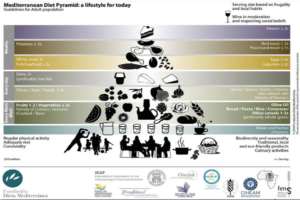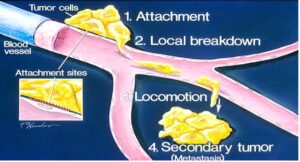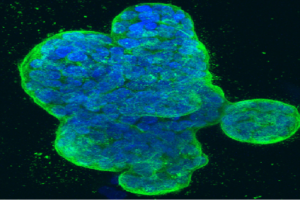Cover Image: Signs similar to this one have become increasingly prevalent over the past eighteen months, and they are not likely to be removed anytime soon as the pandemic rages on and mask mandates are maintained in many parts of the country. (Source: Wikimedia Commons, James Moore)

Undoubtedly, the widespread implementation of masking policies as a mitigation measure to slow the spread of COVID-19 has been an important preventive measure during the pandemic. The prominence of masks in everyday social interactions, however, seems to be having a far less positive impact on facial perception skills in social settings.
According to a study by Freud et al. (2020) of York University (Toronto, Canada), partial occlusion of faces by masks has altered the mechanisms by which humans perceive and interpret the faces of people around them. Typical face perception is characterized by holistic processing; that is, the face is processed in the fusiform region of the brain’s temporal lobe as a whole, rather than as a compartmentalization of its different features. The three configural processes that define facial recognition are: perception of the relationship between facial components (eyes, nose, mouth), aggregation of these features to form an understanding of the face as a whole, and diversification of second-order relationships (processing two components of the face in relation to each other: the eyebrows and hairline, for example). Thus, covering up the lower portion of the face should cause a disruption in an individual’s holistic processing capabilities as the entire face cannot be analyzed (Freud et al., 2020).
The study by Freud et al. concluded, based on the evaluation of facial recognition capabilities (both unmasked and masked) for 496 adult observers, that attempts to recognize masked faces were associated with a significant decrease in performance. Facial holistic processing, which was measured via fMRI imaging of temporal lobe activity, was also severely diminished for masked faces. Notably, this is traditionally a symptom of a condition known as prosopagnosia. This condition can be acquired after sustaining damage to the fusiform gyrus of the inferior temporal cortex (via stroke, head injury, etc.), or can be present from the time of an individual’s birth with an unknown neurological basis (Freud et al., 2020). In this instance, autosomal dominant inheritance of congenital prosopagnosia is thought to occur as a result of a mutation or deletion of the oxytocin receptor (OXTR) gene. And thus, as masking becomes a more normalized part of everyday life, so too does the emergence of an apparent blindness to facial recognition.
The societal implications of widespread face-blindness are innumerable. Altered performance in facial recognition experiments including partially obstructed faces could significantly affect social interactions, interpersonal communication, and the formation of long-standing connections with others. Prior studies examining the reduction in face recognition abilities in patients afflicted with age-related macular degeneration have found a strong correlation between a reduction in this ability and increased social disengagement, decreased interpersonal confidence, and an overall reduction in quality of life (Verfaillie, 2014). In the realm of education, specifically, these implications are particularly alarming, and may lead to a reduction in the student-teacher interpersonal relationships that are all too important for sustained educational growth. Going forward, then, it is important that society strikes a balance between taking as much precaution as possible to prevent the spread of COVID-19, and ensuring that individual quality of life is not overly hindered by pandemic restrictions
References
Freud, E., Stajduhar, A., Rosenbaum, R. S., Avidan, G., & Ganel, T. (2020). The covid-19 pandemic masks the way people perceive faces. Nature News. Retrieved October 29, 2021, from https://www.nature.com/articles/s41598-020-78986-9.
Verfaillie, K. (2014). Impaired holistic and analytic face processing in congenital prosopagnosia: Evidence from the eye-contingent mask/window paradigm. Taylor & Francis Online. Retrieved October 29, 2021, from https://www.tandfonline.com/doi/full/10.1080/13506285.2014.881446.
Related Posts
The Mediterranean Diet Could Help Treat and Prevent Adolescent Depression
Source: Mediterranean Diet Pyramid (Flikr Public Domain, Zaid Alasad) The...
Read MoreMETMAP: Mapping metastatic progression
Figure 1: The start of metastasis – the movement of...
Read MoreConsidering the Microbiota-Gut-Brain-Axis in Cancer Research
Lead Author: Jillian Troth1 Co-Authors (alphabetical order): Roxanna Attar2, Julia Gainski3,...
Read MoreUsing Metabolic Network Models to Identify New Antibiotic Targets
Source: Nastya Dulhiier How do you treat bacterial infections without...
Read MoreWhat Drives Musical Pleasure? Scientists Now Have the Name
Figure 1: Why is music so rewarding for the human...
Read MoreRisk of Death Among Recently Released Inmates
Figure 1: While healthcare inequity is certainly an issue while...
Read MoreEvan Accatino






